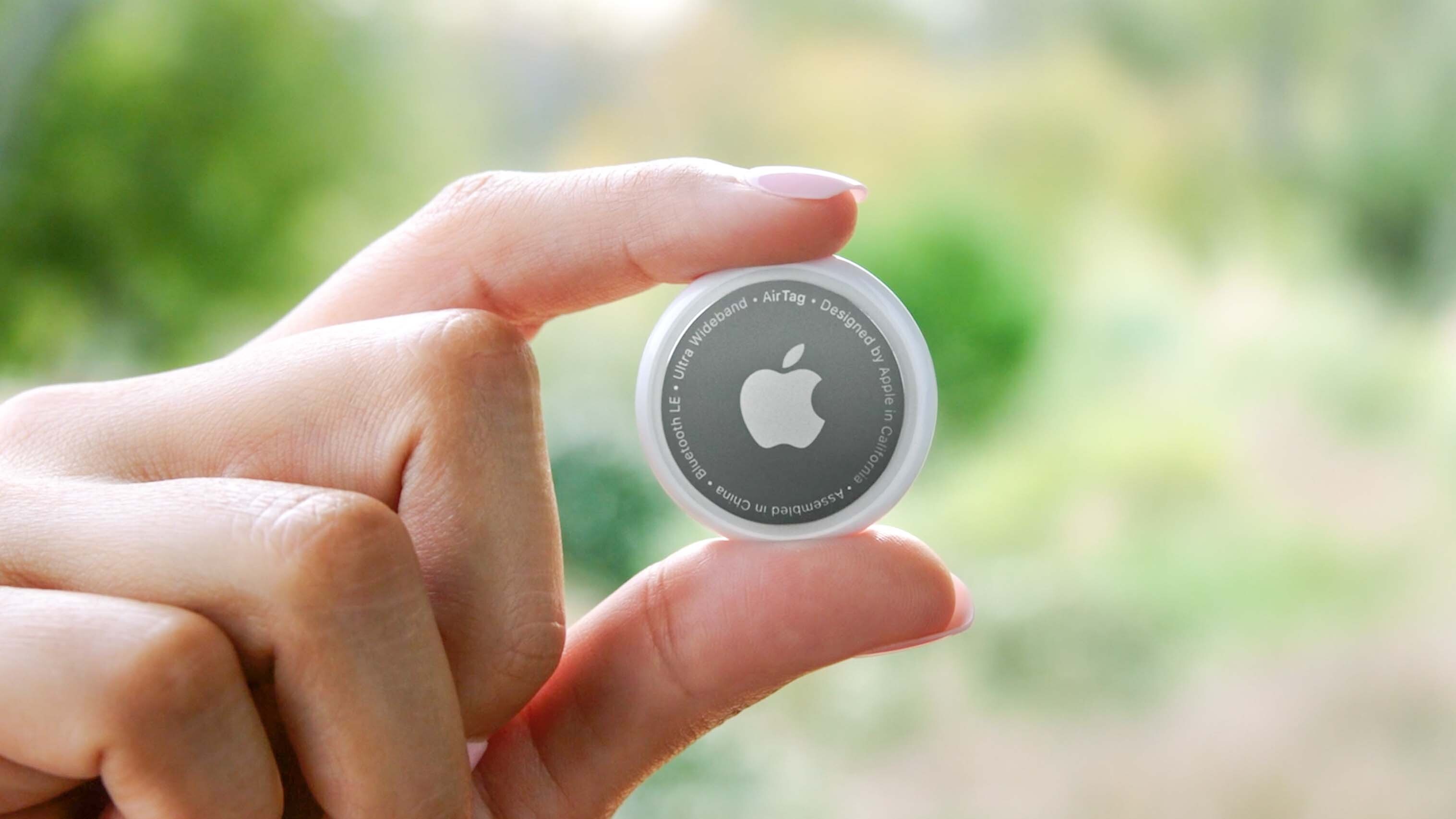Apple AirTag stalking is worse than anyone realized — what you can do
AirTag stalking could be worse than we thought, but there are things you can do to protect yourself

Update: A woman reportedly used an AirTag to track and murder her boyfriend. Plus despite continuing safety concerns, Apple could end up making an AirTag 2 if it continues to sell well.
Ever since the launch of Apple's AirTags last year, we’ve been hearing stories about how they’re being used for an unintended purpose: stalking. It's been a particular problem for women, and now it seems it may be even more serious than people realized. So much so that it could be time to take Apple AirTags off the market.
That's according to research by Motherboard, which got hold of reports from eight major police departments, covering a period of eight months. In that time there were 150 reports that mentioned AirTags, 50 of which came from women who had received notifications that a rogue AirTag was tracking them.
Half of those 50 women suspected a man in their lives may have been responsible for planting the AirTag — with the goal of following and harassing them. In one case, a woman had called the police because a man had escalated his harassment; the report records her as saying he’d placed an AirTag in her car and threatened to “make her life hell”.
Other cases involved an angry ex slashing a woman’s tires and leaving an AirTag in her car, plus a woman who reported finding AirTags attached to her car on multiple occasions. She claimed it was her ex, who has a history of assault, since he was able to show up at places at the same time as her.
Ex-partners mysteriously appearing is a recurring story in the reports, as are fears and threats that the person planting the AirTag intended to inflict physical harm. However, some reports came from women in an active relationship with the man stalking them, some of whom became violent when confronted about it.
Of the 150 reports, only one involved a man who suspected his ex-girlfriend was stalking him with an AirTag. Less than half of the reports mention AirTags being involved in some sort of robbery.
Get instant access to breaking news, the hottest reviews, great deals and helpful tips.
It’s worth emphasizing that these reports came from just eight police jurisdictions, of the thousands that exist in the United States. It also doesn’t take into account any of the other countries where AirTags are on sale. In other words, the 50 stalking reports are likely just scratching the surface.
What is Apple doing about it?
Apple has faced criticism over AirTags and their ability to be used for criminal purposes — particularly stalking. iOS has had a feature that automatically detects unfamiliar AirTags since the fobs launched in April 2021, and it's received multiple updates since, but it’s clear that isn’t enough.
For starters, it ignores the fact Android users exist, and may be subject to AirTag stalking. Knowing an AirTag is following you is also not as helpful as being able to track it down. Apple did launch the Tracker Detect app to Android at the end of last year. Unfortunately, the app doesn’t work automatically, like it does on iPhone; the user needs to actively scan for nearby AirTags, which doesn't help much if you have no idea you are being stalked.
Apple has also promised to launch a precision-tracking feature to help victims hunt down unknown trackers. This should also make it clearer if someone is potentially being tracked with an AirTag.
Sadly, this feature isn’t set to arrive until later this year, and Apple only announced support for iPhone 11, iPhone 12 and iPhone 13 devices — presumably because it relies on ultrawide band technology that isn’t available in other devices.
Clearly more needs to be done to prevent this kind of abuse from occurring. Soon Google may have plans to add an OS-level tracker detector to Android, which will be a helpful tool to have, but it's not available to help people that are being stalked right now.
How can you avoid AirTag stalking?
AirTags work by using Apple's Find My network, which means that every iPhone that passes into range can pick up AirTag signals and automatically relay them to Apple. Given the number of iPhones in use at any given time, it's therefore very easy to track down where an AirTag is.
This is great for finding lost keys, but it also make AirTags an effective and low-cost weapon for stalkers. More so than if the perpetrator were to use something like a Tile, which doesn't have the same reach as Apple's network does.
It pays to know how to protect yourself, and how to flag unfamiliar AirTags that may be following you around. We have a detailed guide explaining how to tell if an AirTag is stalking you, but here are the basics.
iPhone users: Anyone rocking an iPhone 6S or newer can flag unknown AirTags, provided they have iOS 14.5 or a more recent update. Head to the Find My app, tap the Me icon in the bottom right and make sure Item Safety Alerts is enabled.
Android users: There are two options for you. The first is Apple's own Tracker Detect app, though this requires you to manually scan for stray AirTags and requires Android 9.0 or above.
If you'd prefer something automatic, try AirGuard. This will periodically scan for stray AirTags and it works on older devices up to Android 5.0. It can also detect trackers by other companies such as Tile.
Everyone else: If you don't have a smartphone, or your phone is too old for a dedicated tracker-detection app, you don't have many options. But an AirTag will start beeping if it's separated from its paired iPhone or iPad for more than 24 hours — so listen out for any unexpected chirping sounds. This is not a foolproof solution, as the beeping isn't terribly loud, but it is better than being totally oblivious to its presence for extended periods.
Found a rogue AirTag? Be sure to grab the serial number, either from the detection app or by removing the AirTag's back panel, before proceeding to deactivate it.
To do this, push down on the center of the back panel and spin counter clockwise. This opens up the AirTag, letting you remove the battery inside. Once done, you should report the incident and the AirTag's serial number to the police. Apple can then use the number to track down the AirTag's owner.

Tom is the Tom's Guide's UK Phones Editor, tackling the latest smartphone news and vocally expressing his opinions about upcoming features or changes. It's long way from his days as editor of Gizmodo UK, when pretty much everything was on the table. He’s usually found trying to squeeze another giant Lego set onto the shelf, draining very large cups of coffee, or complaining about how terrible his Smart TV is.
